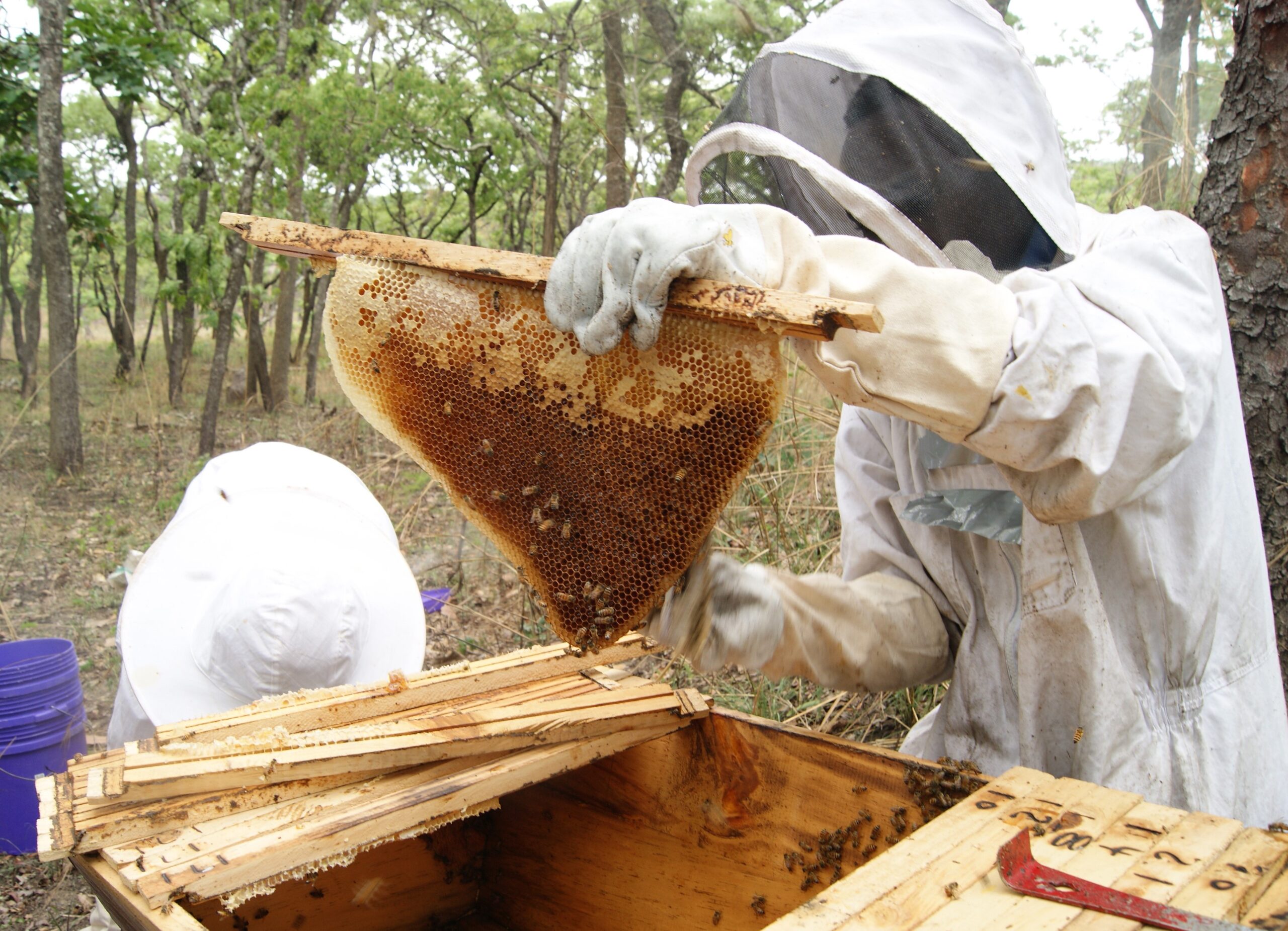Jane Goodall Institute partners with Burlap & Barrel to support Tanzanian livelihoods.
In western Tanzania, bees are doing more than just making honey — they’re helping local people ensure the future of their community and environment. This week, we’re announcing a new partnership with Burlap & Barrel, a leading purveyor of single origin spices sourced directly from smallholder farmers around the world, to offer honey products from beekeepers in western Tanzania.
Balancing People & Planet
The Jane Goodall Institute’s trademark approach to community-led conservation — which we call 🔗 “Tacare” — recognizes that local people have to be at the center of local conservation decisions.
Many challenges to conservation, including illegal hunting, forest destruction, and mining, are the direct result of social issues like poverty; local people often feel that they have to rely on these unsustainable sources of income to support themselves and their loved ones. When basic needs like food, water, and education aren’t being met, it is virtually impossible for critical conservation work to be done.
JGI works with communities to come up with sustainable alternatives — ways that local people can still have their financial needs met without depleting natural resources, including wildlife habitats. This keeps the environment around them healthy, which in turn ensures that livelihoods can continue for many years to come. These alternative, sustainable livelihoods include everything from farming with compost, to mushroom foraging, to beekeeping.
Harvesting Sustainable Honey
Beekeeping is nothing new to communities in Tanzania. In fact, the country is Africa’s second-largest honey producer, with centuries of traditional beekeeping practices. Beekeepers often establish hives directly in forests, using frameless boxes or hollowed logs on a stand near the ground or hoisted high in the branches of large trees to allow bees to easily access the variety of blossoms they need.
Through JGI’s Hope Through Action program, funded by the 🔗 United States Agency for International Development, JGI Tanzania staff provide materials and train local people on sustainable apiculture (a fancy word for beekeeping) practices, which prioritize the health and wellbeing of the bees for a thriving hive. Through these practices, they can produce and sell honey and beeswax.
Creating Lasting Impact for all
The impact of these beekeepers cannot be overstated, supporting both the local economy and the local ecosystems in western Tanzania.
Through this work, beekeepers earn supplementary income to help support themselves and their families. In a region where the average annual salary is only $600, producing honey can help community members provide their families with food, housing, medical care, education, and so much more.
“…this honey isn’t just delicious, it’s also helping change the lives of the local [Tanzanian] people because harvesting and selling the honey provides an extra source of income for local people and their families.” – Dr. Jane Goodall, DBE, Founder of the Jane Goodall Institute and UN Messenger of Peace
The honey produced in western Tanzania also reflects the region’s incredible biodiversity, containing nectar from over 30 different species of flowering plants. This creates additional benefits: Bees support local biodiversity through their role as pollinators, and the unique flavor resulting from the combination of nectar further encourages communities to preserve local biodiversity for the quality of their product.
Ethan Frisch, Co-Founder and Co-CEO of Burlap & Barrel, explains why they chose to collaborate with Jane Goodall: “We are honored to partner with the Jane Goodall Institute to bring this exceptional honey to market. This initiative is more than a product — it’s a story of sustainability, conservation, and community empowerment. We are proud to share this unique honey with the world while supporting the vital work being done in Western Tanzania.”

HOW TO HELP
This is where you come in! If you’re looking for a sweet treat to warm your heart this winter, consider 🔗 buying a jar (or more) of honey from these Tanzanian farmers. Through our new partnership with Burlap & Barrel, 5% of the retail price of each jar sold will be donated to support JGI’s work with communities in western Tanzania.
Our partnership will include an offering of three raw and unfiltered honey products:
Whichever variety you choose, your purchase will directly support local communities in western Tanzania, helping to conserve critical habitats and contribute to a greener, more hopeful world.
To learn more and bring a taste of Tanzania’s rich biodiversity into your home, visit burlapandbarrel.com.




